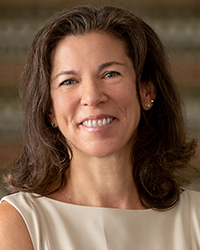Kathryn Stanchi Contributed to Book Honored with Distinguished Publication Award

Professor Kathryn M. Stanchi, E.L. Cord Professor of Law, was recently recognized as a part of an award-winning writing team. Professor Stanchi contributed a chapter in The Rhetoric of Judging Well: The Conflicted Legacy of Justice Anthony M. Kennedy, which was released in 2023 and edited by David A. Frank and Francis J. Mootz III. The book received the 2023 Distinguished Publication Award from the Law Section of the National Communication Association.
Looking at Justice Kennedy’s legacy through the lenses of rhetoric, linguistics, and constitutional law, Professor Stanchi’s chapter examines his language and rhetoric in his opinions about women’s civil rights and discusses what Justice Kennedy’s words reveal about how he sees women in society. “In Justice Kennedy’s opinions about women’s civil rights, very distinct (and not flattering) images of women emerge,” Professor Stanchi stated. “Often, even in cases involving our civil rights, women are missing from Justice Kennedy’s opinions; we simply aren’t there, which is pretty astounding. When we do show up, we are often reduced to body parts, especially in the abortion decisions. Other times, we are what can be called “flat characters” – stereotypes or passive phantoms who don’t really possess basic human qualities like dignity or autonomy.”
She continued, “This is all the more surprising because Justice Kennedy writes frequently about dignity and autonomy as core human attributes, particularly in gay civil rights cases. But, for women, those basic aspects of our humanity are missing from his writing.” Professor Stanchi remarked that while her chapter is critical of Justice Kennedy, she is not saying he was intentionally sexist or a bad person. “Like all of us, he has biases, and those biases are evident in the language he chooses. I sympathize with Justice Kennedy. He had a job that was so very public and is very hard to do well. But the main point of the chapter is that all of us, particularly those, like judges, who hold significant power over the lives of others, should confront and interrogate our biases. That acknowledging personal bias and attempting to fight it is, or should be, part of judging well.”